The University of Southampton is a research-intensive university and a founding member of the Russell Group. It has five campuses in Southampton, one in Winchester, and another in Malaysia. With over 21,000 students from 130+ countries, the university emphasizes innovation and research with a global impact.
| Acronym | Soton |
| Motto / Slogan | The Heights Yield to Endeavour |
| Colour | Marine Blue |
| Founded | 1862 |
| Undergraduate Programmes | |
| Postgraduate Programmes | 228 |
| Location | Southampton, England, United Kingdom |
| Address | University of Southampton University Road Southampton SO17 1BJ United Kingdom |
The University of Southampton's core mission is "to change the world for the better." This encompasses their commitment to developing future leaders, conducting world-leading research, and contributing to sustainable solutions.
The University of Southampton's vision is to be a distinctive, global leader in education, research, and enterprise, aiming to "change the world for the better".
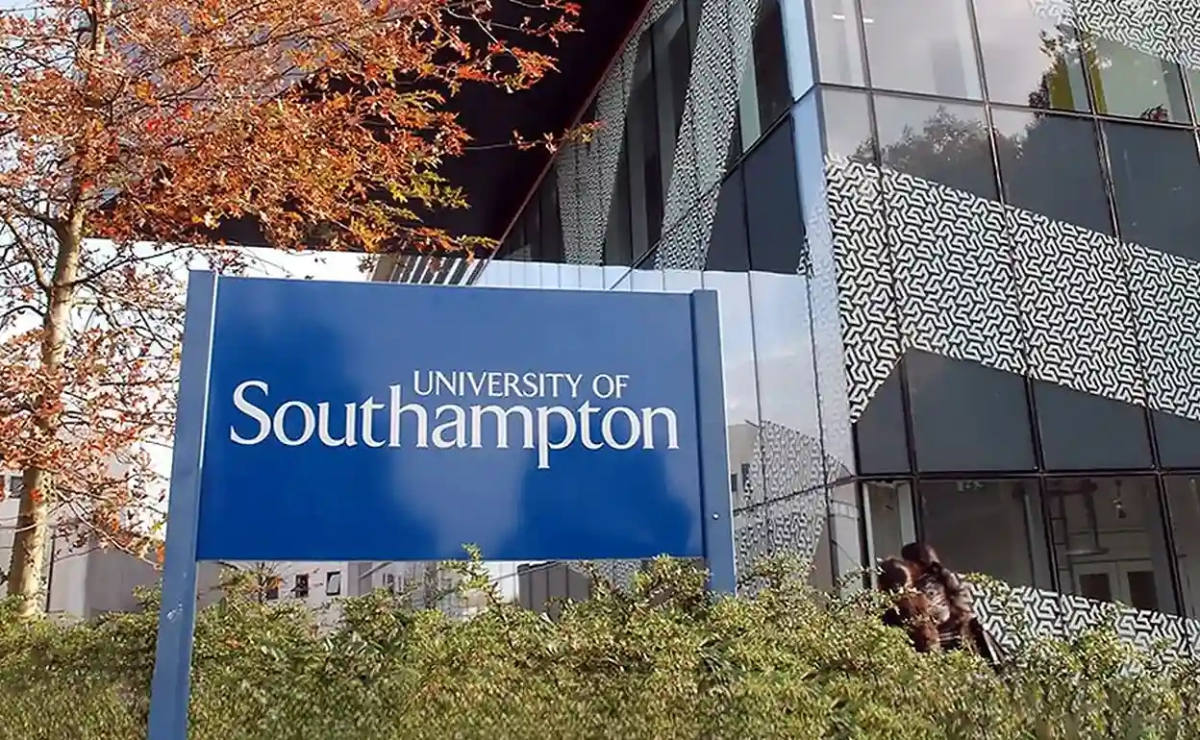
The University of Southampton's primary objective is to be a world-leading, research-intensive university that contributes to global economic and social benefits through the generation of knowledge and technologies.
The University of Southampton is changing the world for the better, working with industry, governments and research institutions to make a global impact. Our staff and students tackle real-world issues, making a difference to people’s lives in the local community, across the UK and around the world.
Visit our research impact page to find out how we are addressing some of the most challenging issues facing society, and how our research is changing the world for the better. Our University performed exceptionally well, and the assessment placed us in the top 10 per cent in the sector and fourth in the Russell Group.
The University of Southampton contributes £4.14 billion to the UK economy every year, according to the 2022 Economic Impact Report conducted by independent consultants London Economics. For every pound spent by the University, £7.40 was generated in economic benefit
The direct impact associated with activities of the University’s spinout activities in 2020-2021 was £370 million in turnover, supporting 1,140 FTE staff and contributing £126 million of gross value added (GVA). The total economic impact associated with the activities of our spinouts was estimated to be £928 million in 2020-2021.
The University is a major employer, and creates and underpins employment in other organisations, amounting to more than 16,000 jobs across the UK. The University educated 21,000 students in 2020-2021. Over the years, many of our graduates have emerged as leaders in their fields.
The University of Southampton is an active partner working with the city of Southampton to celebrate diversity and bring people together through culture to create new economic and social opportunities.
For some specific degree courses, entry requirements can also include a successful:
Entry requirements can also include professional experience.
For most of our courses, our Admissions team will review your application. They will assess whether your application should receive an offer for a place to study at the University.
For some courses, we'll send your application to an academic selector. The selector will assess and determine if you need to attend an interview or selection event before getting an offer.
You can find specific entry requirements on the individual course pages in our course finder.
If you're not from the UK, you can also find help with your qualification?on our country information page.
All our courses are taught in English (other than in Modern Languages) all applicants must demonstrate that they possess a minimum standard of English language proficiency to be admitted to a course at Southampton.
UNDERGRADUATE
POSTGRADUATE
Email: [email protected]
Phone : +44 (0)23 8059 2421
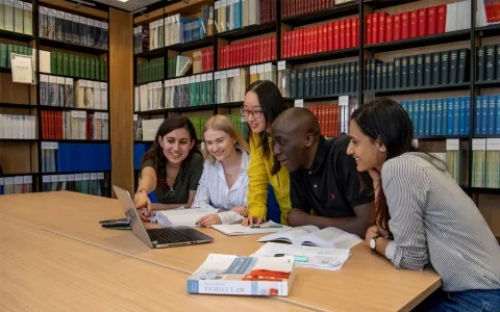
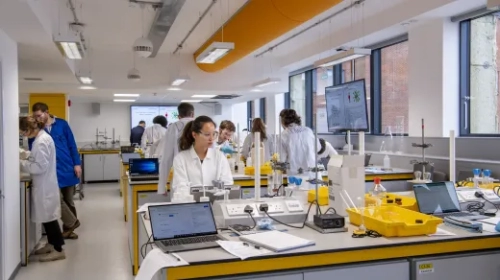
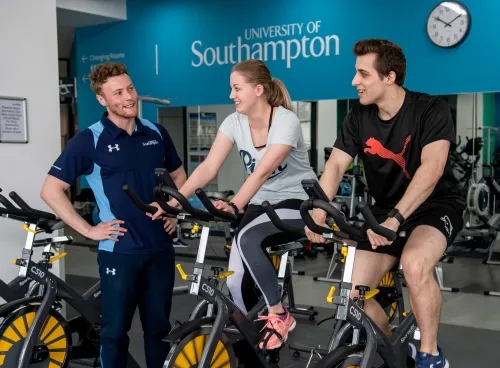
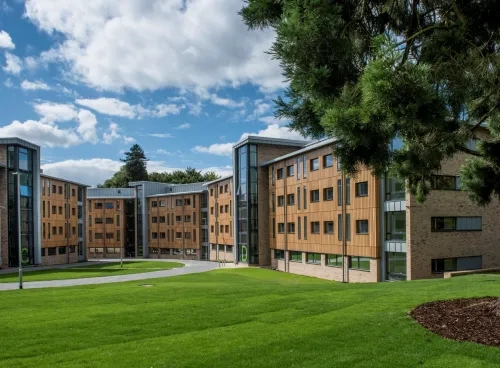
Support your studies with facilities and equipment over 5 levels. Explore a wealth of materials across our collection of printed books, journals and online resources.
Books and learning resources :The library includes archives, special collections and more than 6.5 million historic manuscript items. We also have 50,000 printed books. We have a section dedicated to improving your academic skills with topics on:
Facilities and equipment :
Study space :
Food and drink :
We have water bottle fillers and refreshments from our café and vending machines.
2. Accommodation : All students who received an accommodation guarantee will be offered a room in one of our halls of residence. We offer lots of different types of room in our 7 halls of residence. You can apply for 5 to 7 room choices. Each hall is divided into flats, with single-occupancy bedrooms sharing a communal kitchen area. Our halls also have areas for socialising and laundry, and some have gyms and leisure facilities too.
3. The Southampton Sport team is here to help the Southampton community keep fit and active. Whether you're looking to compete, challenge yourself or just have fun, our sports venues offer a wide range of activities and classes for you to get involved with.
4. Gym :The University is proud to offer a wide range of modern sporting facilities for our staff, students and wider community to use. Our partnership with the Active Nation network also gives some members access to additional gyms and swimming pools.
AACSB accreditation
He has overall responsibility for the University’s operations and helps to direct and achieve its strategic goals.
The Vice-Chancellor also chairs the University Senate, is a member of the University Council and represents the University externally.
Throughout his... read more
Professor Aaron Ridley had his BA in York in 1984, and his PhD in Cambridge in 1991. He has been teaching at Southampton since 1994.
He has 64 Publications of books, and articles.
Achala co-leads the Centre for Research in Inclusion and initiated CRI Chronicles. She is a member of the editorial board of the British Journal of Sociology of Education and has in the past served as an EdBoard member of the British Sociological Association's flagship journal, Sociology.
It all started with a local eccentric - Henry Robinson Hartley. Hartley was the heir to a family of Southampton wine merchants. A studious and reclusive character, he had turned his back on the family business and when he died he left his estate to the Corporation of Southampton to promote the study and advancement of science and learning.
The result was the formation of The Hartley Institution, which opened in the High Street,below the Bargate in 1862.
Within three years, the Hartley Institution had a membership of almost 700 – many of these being part-time evening ... read more
Rapid growth of our student population in the 1950s led to a massive expansion of our Highfield campus, and we began to innovate on a national and global level in a number of areas.
Our innovations: